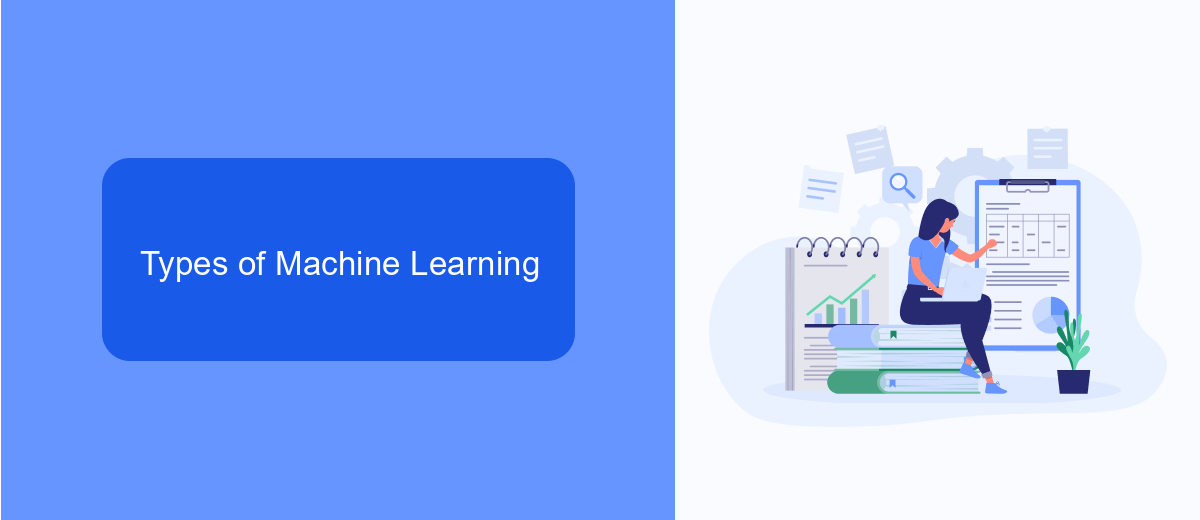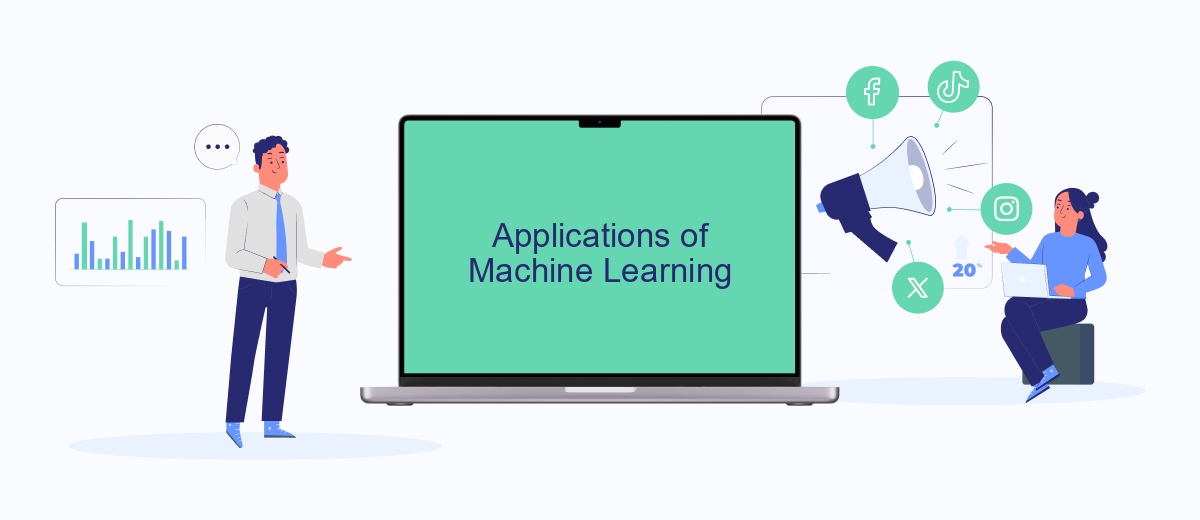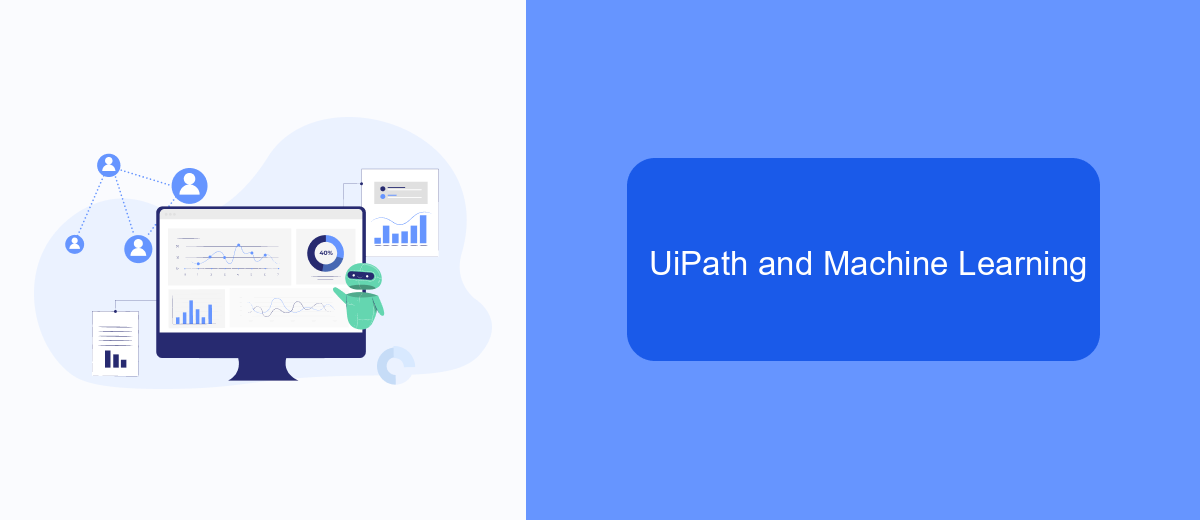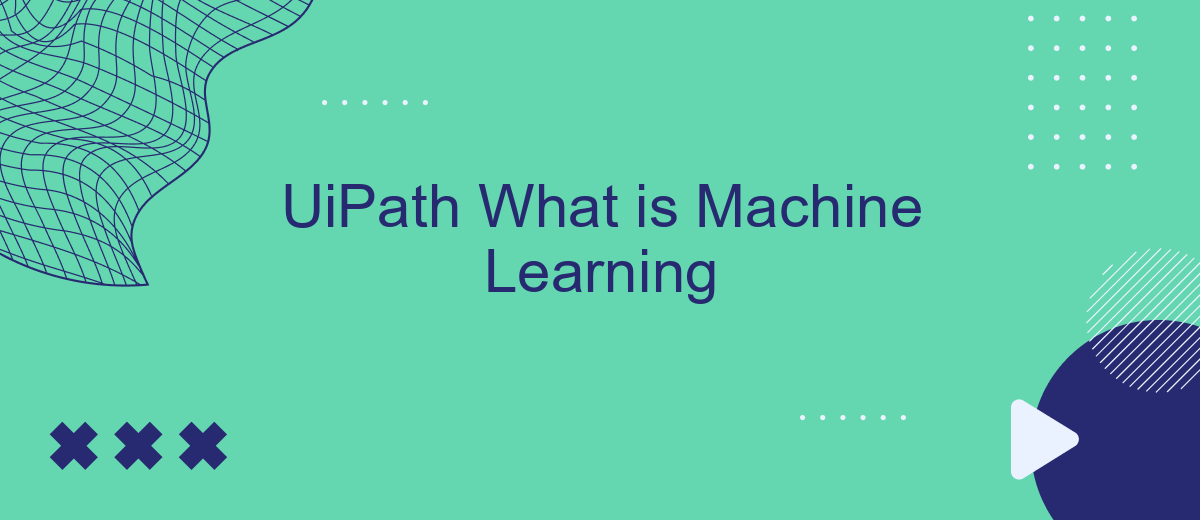Machine Learning (ML) is revolutionizing industries by enabling systems to learn and improve from experience without explicit programming. UiPath, a leader in robotic process automation (RPA), integrates ML to enhance automation capabilities, making processes smarter and more efficient. This article explores the fundamentals of Machine Learning, its integration with UiPath, and how it transforms business operations for the better.
Introduction to Machine Learning
Machine learning is a subset of artificial intelligence that focuses on building systems capable of learning from and making decisions based on data. Unlike traditional programming, where rules and logic are explicitly coded, machine learning algorithms identify patterns and relationships in data to make predictions or decisions. This technology has a wide range of applications, from recommendation systems to fraud detection and beyond.
- Automated data analysis
- Predictive modeling
- Natural language processing
- Image and speech recognition
- Recommendation systems
Integrating machine learning into your business processes can significantly enhance efficiency and decision-making. For instance, platforms like SaveMyLeads facilitate seamless integration by automating data transfer between different services and applications. This ensures that machine learning models have access to up-to-date and relevant data, enabling more accurate predictions and insights.
Types of Machine Learning

Machine learning can be broadly classified into three main types: supervised learning, unsupervised learning, and reinforcement learning. Supervised learning involves training a model on a labeled dataset, meaning that each training example is paired with an output label. This type of learning is commonly used for tasks such as classification and regression. Unsupervised learning, on the other hand, deals with unlabeled data and seeks to identify patterns or structures within the data. Common applications include clustering and dimensionality reduction.
Reinforcement learning is a type of machine learning where an agent learns to make decisions by performing actions in an environment to maximize some notion of cumulative reward. This is often used in robotics, gaming, and real-time decision-making. Additionally, there are hybrid approaches like semi-supervised learning, which combines both labeled and unlabeled data. Integrating machine learning models with automation platforms like UiPath can significantly enhance business processes. For instance, using services like SaveMyLeads can streamline the integration of machine learning models with various CRM systems, ensuring seamless data flow and more efficient operations.
Applications of Machine Learning

Machine learning (ML) has revolutionized various industries by enabling systems to learn from data and improve over time without explicit programming. It has a wide range of applications that are transforming the way businesses operate and make decisions.
- Healthcare: ML algorithms are used for predictive analytics, personalized treatment plans, and early disease detection.
- Finance: In the financial sector, ML models help in fraud detection, risk management, and algorithmic trading.
- Retail: ML enhances customer experience through personalized recommendations and inventory management.
- Marketing: Tools like SaveMyLeads utilize ML to automate and optimize lead generation and customer engagement strategies.
- Manufacturing: Predictive maintenance and quality control are major ML applications in this field.
These examples illustrate just a few of the many ways machine learning is being applied to solve real-world problems. As technology advances, we can expect even more innovative applications to emerge, further enhancing efficiency and decision-making processes across various sectors.
UiPath and Machine Learning

UiPath, a leading RPA (Robotic Process Automation) platform, has integrated machine learning to enhance its capabilities. By leveraging machine learning, UiPath enables businesses to automate complex tasks that involve decision-making and pattern recognition, thereby increasing efficiency and reducing human error.
Machine learning models can be trained and deployed within the UiPath ecosystem to handle tasks such as image and text recognition, predictive analytics, and anomaly detection. This integration allows for more intelligent automation workflows that can adapt and learn from data over time.
- Improved accuracy in data extraction and processing
- Enhanced ability to handle unstructured data
- Real-time decision-making capabilities
- Scalability in automation projects
For businesses looking to streamline their automation processes further, services like SaveMyLeads can be invaluable. SaveMyLeads facilitates the integration of various applications and services with UiPath, allowing for seamless data flow and automation. This ensures that machine learning models and RPA workflows are always up-to-date and functioning optimally.
Conclusion
In conclusion, UiPath's integration of Machine Learning represents a significant advancement in automation technology. By leveraging the power of ML, UiPath enables businesses to automate more complex tasks, enhance decision-making processes, and improve overall efficiency. The seamless integration of ML models into UiPath workflows allows for real-time data analysis and predictive insights, making it easier for organizations to adapt to changing market conditions and customer needs.
Moreover, services like SaveMyLeads can further enhance the capabilities of UiPath by simplifying the integration of various data sources and applications. SaveMyLeads offers an easy-to-use platform for automating lead generation and data synchronization, which can be crucial for businesses looking to maintain a competitive edge. By combining UiPath's robust automation tools with the flexibility of SaveMyLeads, organizations can achieve a higher level of operational efficiency and drive better business outcomes.
- Automate the work with leads from the Facebook advertising account
- Empower with integrations and instant transfer of leads
- Don't spend money on developers or integrators
- Save time by automating routine tasks
FAQ
What is Machine Learning in the context of UiPath?
How does UiPath integrate Machine Learning into its platform?
Can non-technical users leverage Machine Learning in UiPath?
What are some common use cases for Machine Learning in UiPath?
How can I integrate third-party services for Machine Learning in UiPath?
If you use Facebook Lead Ads, then you should know what it means to regularly download CSV files and transfer data to various support services. How many times a day do you check for new leads in your ad account? How often do you transfer data to a CRM system, task manager, email service or Google Sheets? Try using the SaveMyLeads online connector. This is a no-code tool with which anyone can set up integrations for Facebook. Spend just a few minutes and you will receive real-time notifications in the messenger about new leads. Another 5-10 minutes of work in SML, and the data from the FB advertising account will be automatically transferred to the CRM system or Email service. The SaveMyLeads system will do the routine work for you, and you will surely like it.

